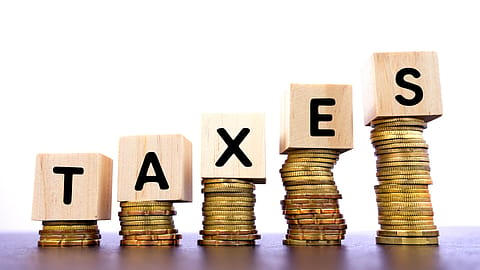Budget 2023-24: Increase tax rebate benefits for consumption expenditure, says PHD Chamber
The development comes at the sidelines of pre-budget consultations that have started from November 21.

The industry body PHD Chamber of Commerce and Industry on Monday said that there is a need to increase the tax rebate benefits for consumer expenditure in the Union Budget 2023-24. In its pre-budget proposals, the industry body has suggested five strategies to revitalise private investments including enhancing consumption, increasing capacity utilisation in the factories, creating employment, enhancing the quality of social infrastructure and strengthening economic growth.
The development comes at the sidelines of pre-budget consultations that have started from November 21.
The budget 2023-24 will be presented by the union minister of finance Nirmala Sitharaman on February 1 next year amidst the ongoing Russia-Ukraine war that has dampened the global macroeconomic trends. Notably, in the previous budget, the finance minister did not announce any tax slabs for the salaried class.
Saket Dalmia, president, of the PHD chamber of commerce and industry, said in a statement, “Tax rebate on the purchase of the self-occupied house is given ₹2 lakh only since the last many years. This needs to be enhanced with the wider scope of consumption expenditure such as the purchase of more than one house, the purchase of a car, along with other durables. Consumption expenditure rebate must be enhanced to ₹5 lakh per annum.”
“This will not only enhance the aggregate demand in the economy but also attract private investments, increase capacity utilization of the firms and create enormous employment opportunities in the economy,” he added.
The confederation of Indian industry (CII) has also proposed reducing rates on personal income tax to increase disposable incomes and revive the demand and reducing the 28% goods and services tax, (GST) rate on select consumer durables. The CII has also proposed the deepening of the corporate bond market, prioritising a package for large play for urban municipal bonds and launching the multiplier projects with an allocation of ₹10,000 crore.
Apart from the tax rebate, PHD chamber of commerce has proposed public investments in the agri and food processing sector. “Reforms in rural infrastructure logistics and a cold chain are required as it would help in increasing the level of food processing industry and rural entrepreneurship. This would lead to increased participation in global agriculture and food exports,” Dalmia said.
Recommended Stories
The industry body has also proposed increasing the exports of agri and food processing products to $100 billion in the next three years. To realise the vision to become Atmanirbhar Bharat and a developed economy by 2047, the industry body has proposed that infrastructure investment must not be less than 10% of the gross domestic product (GDP).
“The union budget 2023-24 is being presented at a crucial juncture of geo-political uncertainties, high inflation and slowing world economic growth. At this juncture, calibrated steps to enhance domestic sources of growth would be crucial to maintain the steady economic growth trajectory,” Dalmia said.
In the pre-budget meeting which was scheduled for today, Sitharaman held talks with the industry leaders and environment leaders on infrastructure and climate.
According to the ministry of finance, the minister will hold pre – budget meetings with agriculture and agro processing industry and financial sector and capital market sector on November 22. This will be followed by a meeting with service and trade sector and social sector (health, education, rural development, and water and sanitation) on November 24.
(INR CR)
On November 28, the finance minister will meet trade union and labour organisations, and economists.